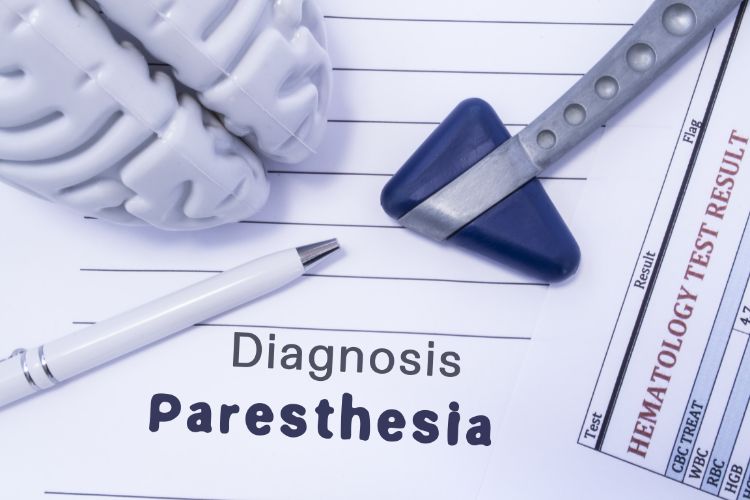Calcium is a mineral that our body needs to stabilize blood pressure and build healthy bones and teeth. Most of the calcium in our body is stored in our bones, and as we age, our bones become less dense. This means we need to increase our daily calcium intake as we get older. In general, women need to begin increasing their calcium intake earlier than men; this is particularly important as we approach menopause.
There are a few different reasons that we can be calcium deficient -- low levels of Vitamin D makes it harder for our bodies to absorb calcium, and high levels of potassium can cause our bodies to burn calcium faster. Some medications interfere with our calcium levels, in particular those taken for thyroid replacement. Calcium deficiency occurs over a long time, because our body will maintain mineral levels for as long as possible by taking calcium directly from our bones. This means that long-term calcium deficiency can have serious consequences. Read on to learn the symptoms.
Advertisement
1) Muscle cramps. These particularly occur in the back and legs.

PR Image Factory / Shutterstock
2) Muscle spasms. Muscle cramps can progress into muscle spasms because calcium plays an important role in muscle contraction. In severe cases this can even cause seizures in otherwise healthy people.

michaelheim / Shutterstock
3) Paresthesia. This describes a number of symptoms related to the nervous system, which can be a result of severe calcium deficiency. These include tingling, numbness, muscle tremors, confusion, hallucinations and an impaired sense of touch. If you experience any of these symptoms you should seek medical help immediately.

Shidlovski / Shutterstock
4) Altered mood. This can include irritability, depression and personality changes.

favorita1987 / Shutterstock
5) Trouble sleeping. Calcium is related to your sleep cycle, and our levels of calcium rise and fall as we sleep. Studies have found that an inability to sleep deeply is related to calcium deficiency, and that normal sleep cycles can be restored when calcium levels are normal. This could be due in part to calcium's role in the creation of melatonin, a hormone that helps us to sleep.

Marcos Mesa Sam Wordley / Shutterstock
6) Weak and brittle nails. A calcium deficiency can lead to weak, brittle and dry nails that split and peel away from the nail bed. The same goes for your hair and skin. Stop your nails from breaking when you try these 6 home remedies for brittle nails.

Vitezslav Malina / Shutterstock
7) Weak bones. Calcium directly affects our bone density, and low levels of calcium can increase our susceptibility to osteoporosis and fractures.

Orawan Pattarawimonchai / Shutterstock
8) Difficulty swallowing. Although this may sound unusual, it comes down to the muscle contractions we talked about earlier. This can also lead to unusual voice changes, which are caused by spasms in the larynx.

Studio KIWI / Shutterstock
9) Struggling to lose weight. We should begin by saying that this one can be linked to a number of other health and lifestyle issues, but it has been linked to low calcium levels. Studies have shown that the calcium stored in fat cells helps regulate the fat stored in the body, and cells that contain the most calcium actually burn more fat.

Yuriy Maksymiv / Shutterstock
10) Toothaches. The vast majority of calcium in your body is stored in your bones and teeth, so low calcium levels are linked to tooth decay and toothaches.

puhhha / Shutterstock
11) Neonatal hypocalcemia. This one only applies to babies and usually occurs in the few days after birth. It is marked by jitteriness, poor feeding, seizures, slowed breathing or a rapid heartbeat. This is a medical emergency; you should seek medical help right away.

polinaloves / Shutterstock
Unfortunately, by the time you see symptoms of calcium deficiency your body has already been deprived for a relatively long time. You should speak to your doctor about the best way to bring your calcium levels back up. In the meantime, you can increase your calcium intake by adding calcium-rich foods to your diet such as fatty fish (e.g., salmon or tuna), fortified orange juice, fortified milk and eggs. It is also important to maintain healthy vitamin D levels so that your body can continue to absorb the calcium effectively, and get regular exercise.
Advertisement
Keep Reading: Top vitamin deficiencies that affect the most people

